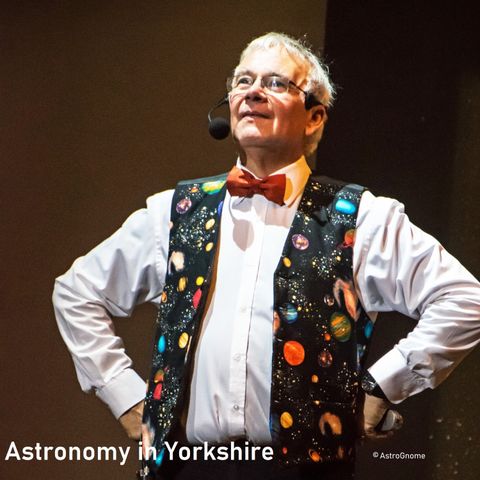
Contacts
Info
Welcome to Astronomy in Yorkshire, astronomy stories from England's largest county. By Martin Lunn MBE www.theramblingastronomer.co.uk

2 MAY 2021 · The Devils Arrows a line of three huge stones sometimes called ‘the three sisters’ there are suggestions that originally there were four stones.
26 APR 2021 · Sir Frank Watson Dyson 1868-1939 was born near Ashby de la Zouche in Leicestershire who is largely remembered today for introducing the time signals or (pips) from Greenwich. Although not born in Yorkshire when he was very young his family moved to Yorkshire.
24 APR 2021 · One of the most prestigious positions in astronomy today is to be the Savilian Professor of Astronomy at the University of Oxford. You have probably guessed it was a Yorkshire man who established that position, Sir Henry Savile November 1549 – 1622. He was born at Bradley, near Halifax.
22 APR 2021 · Charles Green 1734- 1771 was born in Wentworth South Yorkshire and would travel with Captain Cook to the south seas to witness the transit of Venus on the ship Endeavour.
19 APR 2021 · Alfred Fowler was born on March 22nd 1868 at Wilsden on the outskirts of Bradford and would become one of the most important astronomers of the first half of the 20th century.
16 APR 2021 · Think of maths lessons at school think of Logarithms then think of Henry Briggs 1561-1631, if you didn’t like log tables he would be the man to blame and he was a Yorkshire man. Although he didn’t invent the logarithm he made them more useable in the scientific community. He was also a damn good astronomer!
14 APR 2021 · The designs of telescopes would take a giant leap forward in the eighteenth century in Yorkshire, if Abraham Sharpe made what might be called an equatorial telescope the first true equatorially mounted telescope was made in York in 1739 by Henry Hindley (1771-1777).
He was a clock maker rather than a telescope maker and although not born in Yorkshire it is believed that he was born near Manchester in 1701 where he served as an apprentice clock maker and moved to York in 1730.
13 APR 2021 · Roger of Hoveden or Howden in the East Riding, around the year 1192 wrote a general history of England from the year 732. He does make an interesting reference to the Milky Way, Roger says that the Anglo Saxon name was Waetlinga Straet or the paths of the Waetlings, these were giant sons of King Waetla who were the legendary founders of the path.
12 APR 2021 · The York Observatory was built by the Yorkshire Philisophical Society in 1832 following the first meeting of the Bristish Association for the Advancement of Science at their museum, The Yorkshire Museum in 1831. It houses the oldest known working Thomas Cooke telescope.
10 APR 2021 · A black hole does not have a surface, like a planet or star. Instead, it is a region of space where matter has collapsed in on itself. This catastrophic collapse is the result of a supernova explosion. The gravitational pull of this region is so great that nothing can escape – not even light. The first time the term ‘Black Hole’ was used was in Yorkshire in the 1780s by John Michell 1724-1793.
Welcome to Astronomy in Yorkshire, astronomy stories from England's largest county. By Martin Lunn MBE www.theramblingastronomer.co.uk
Information
| Author | Martin Lunn |
| Organization | Martin Lunn |
| Categories | Astronomy |
| Website | - |
| lunn_martin@sky.com |
Copyright 2024 - Spreaker Inc. an iHeartMedia Company
